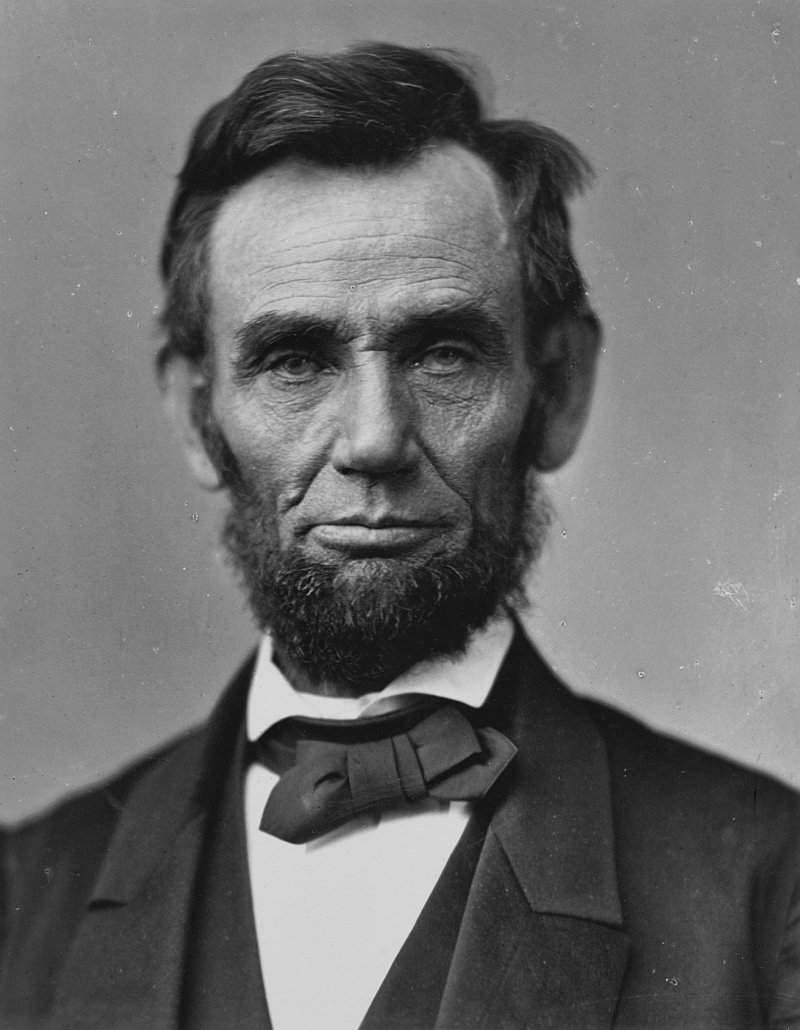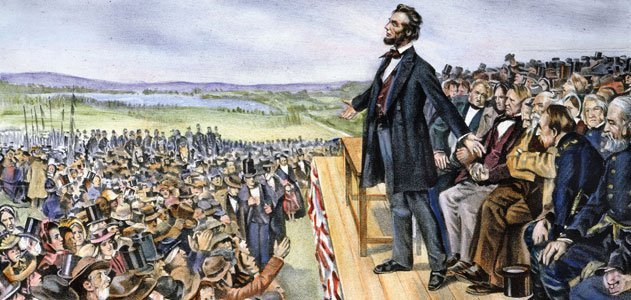Abraham Lincoln

Abraham Lincoln (1809-1865) served as the 16th President of the United States from 1861 to 1865. He led the United States throughout the American Civil War, in which the southern states sought to secede from the union in order to protect their right to tolerate slavery. “A house divided against itself cannot stand,” he famously said. Lincoln led the North to triumph, saving the Union and ending slavery. His speeches, notably the Gettysburg Address, have defined what it is to be an American.
Although Lincoln lost the Senate election in 1858, his debate talents and oratory propelled him to prominence within the Republican Party. On the 27th of February, 1860. Lincoln was also invited to speak at the Cooper Union in New York. Many in the audience believed Lincoln's appearance was odd, if not ugly, on the East Coast, but his pleas for moral clarity on the wrongness of slavery struck a connection with his East Coast audience.
Because of his notoriety on the campaign trail and speeches on the East Coast, he was put forward as a candidate for the Republican candidacy for President in 1860. Lincoln was considered an outsider because he lacked the expertise of other prominent candidates such as Steward, Bates, and Chase. Still, after finishing second on the first ballot, he was unexpectedly selected. Lincoln was elected the first Republican President of the United States after a hard-fought, controversial campaign in 1860. The North and West of the country overwhelmingly supported Lincoln. The South strongly opposed Lincoln's stance on slavery.
The election of Abraham Lincoln as President in 1861 triggered the South's secession from the North. For many years, Southern independence sentiment had been rising, and the election of a president opposed to slavery was the final straw. However, Lincoln was adamantly opposed to the South's secession, which resulted in the American Civil War, with Lincoln determined to preserve the Union. Many people were startled when Lincoln appointed the top adversaries from the 1860 Republican campaign to his cabinet. It proved Lincoln's openness and capacity to collaborate with persons who held opposing political and personal views. This contributed to the Republican Party's unity.
The Civil War was significantly more expensive than many people anticipated, and Lincoln appeared to be losing public support at times. Lincoln's calm leadership and willingness to work with unionist Democrats, on the other hand, kept the country together. Lincoln directed many areas of the war's military operations and appointed General Ulysses S Grant to head the northern armies.
Initially, the war was fought primarily over the secession of southern states and the survival of the Union, but as the conflict advanced, Lincoln increasingly prioritized the abolition of slavery. Lincoln issued the Emancipation Proclamation on September 22, 1862, declaring the freedom of slaves within the Confederacy. “… all persons held as slaves within any State or designated part of a State, the people whereof shall then be in rebellion against the United States, shall be then, thenceforward, and forever free” (Emancipation Proclamation). On January 1, 1863, the Proclamation went into effect. Many black regiments were established toward the end of the year to aid the Union army.
Following the Civil War, Lincoln attempted to unify the country by giving a large settlement to the south. Lincoln said when asked how he planned to deal with the southern states. “Let ’em up easy.” More radical forces opposed Lincoln, arguing that greater activism in the south was needed to establish civil rights for freed slaves. On January 31, 1865, Lincoln aided in the passage of a bill to abolish slavery through Congress. On December 6, 1865, the Thirteenth Amendment to the United States Constitution was ratified.
Some northern abolitionists and Republicans wished Lincoln would go much further and institute full racial equality in education and voting rights. Lincoln was unwilling to do so (it was a minority political viewpoint at the time). Frederick Douglass, a renowned black activist (who had escaped from slavery), didn't always agree with Lincoln's beliefs, but after meeting Lincoln, he spoke well of him. “He treated me as a man; he did not let me feel for a moment that there was any difference in the color of our skins! The President is a most remarkable man. I am satisfied now that he is doing all that circumstances will permit him to do.”
Lincoln is largely regarded as one of the most influential and significant presidents in American history. Lincoln was regarded as embodying the virtues of honesty and integrity, in addition to rescuing the Union and advancing Republican ideas.


























